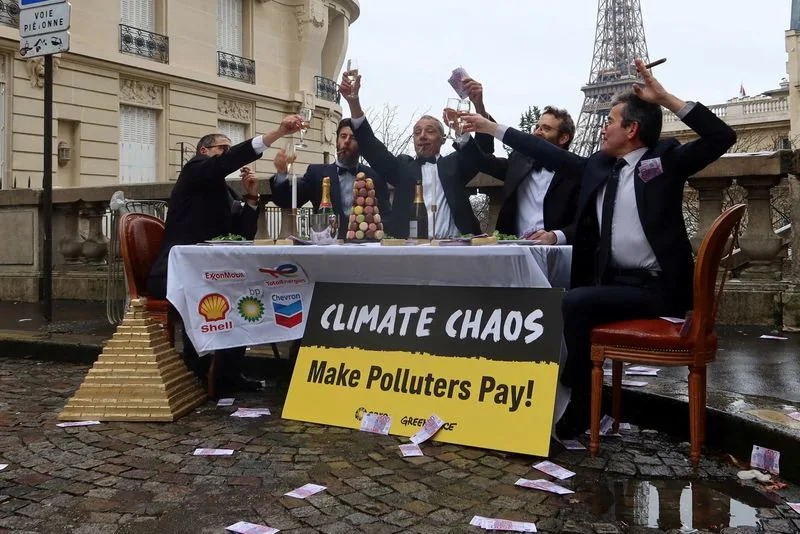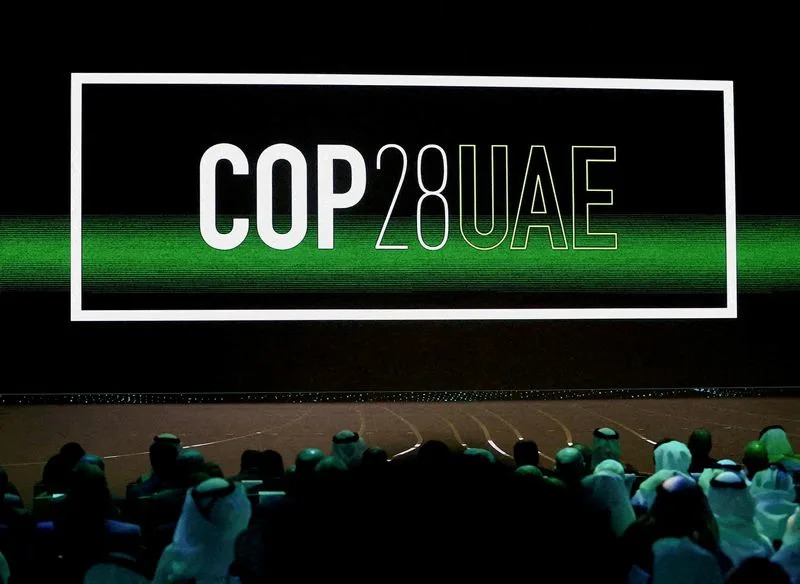Reuters
World to reckon with future of fossil fuels at COP28 climate summit
Valerie Volcovici, Kate Abnett and Maha El Dahan – November 29, 2023


WASHINGTON/BRUSSELS/DUBAI (Reuters) -Delegates from nearly 200 countries will convene this week for the COP28 climate summit in Dubai, where conference host and OPEC member the UAE hopes to sell the vision of a low-carbon future that includes, not shuns, fossil fuels.
That narrative, also backed by other big oil producer nations, will reveal international divisions at the summit over how to combat global warming.
Countries are split over whether to prioritise phasing out coal and oil and gas, or scaling up technologies such as carbon capture to try to diminish their climate impact.
The annual United Nations summit from Nov. 30 to Dec. 12 takes place as the world is poised to shatter another record for the hottest year in 2023, and as reports confirm countries’ climate pledges are not enough to avert the worst impacts of global warming.
Among the decisions nations must make in the gleaming, high-tech city of Dubai will be whether to agree, for the first time, to gradually “phase out” global consumption of fossil fuels and replace them with sources including solar and wind.
The International Energy Agency, the West’s energy watchdog, issued a report ahead of the conference defining its position.
It called the idea of widespread carbon capture, to contain emissions from burning fossil fuels, an illusion and said the fossil fuel industry must decide between deepening the climate crisis or shifting to clean energy.
In response, OPEC accused the IEA of vilifying oil producers.
Greenhouse gas emissions from burning fossil fuels are the biggest cause of climate change.
OIL MAN AT THE HELM
The arguments for and against continued use of fossil fuel have focused on COP’s incoming president Sultan al-Jaber.
His position as CEO of the UAE’s national oil company ADNOC has raised concerns among campaigners, some U.S. Congress members and EU lawmakers over whether he can be an impartial broker of a climate deal.
Jaber has vehemently denied a report from the BBC and the Centre for Climate Reporting (CCR) that he planned to discuss potential gas and other commercial deals with over a dozen governments ahead of the summit.
“These allegations are false, not true, incorrect, are not accurate. And it’s an attempt to undermine the work of the COP28 presidency,” Jaber told a news conference on Wednesday.
Jaber has said the phase-down of fossil fuels is “inevitable”, but also that the industry needs to be included in the debate of finding climate solutions and presented himself as ideally placed to mediate.
Climate campaigners are not reassured.
“We have a world which has more fossil fuels than ever,” said Ani Dasgupta, president of the World Resources Institute, a climate NGO. “What we should be looking for is a commitment to actually reduce fossil fuels.”
Jaber says he has been rallying support from companies for COP28 pledges aimed at reducing emissions from oil and gas operations.
Many representatives of the industry will be present in Dubai as this year’s gathering of 70,000 registered attendees takes on the character of trade show.
Organisers say the record attendance will include the biggest business participation for any U.N. climate summit yet.
Indian Prime Minister Narendra Modi and Britain’s King Charles are also set to attend, although U.S. President Joe Biden will not.
TAKING STOCK
Away from the high-profile visitors, a major task for the country delegations at COP28 will be to assess how far off track the world is from a goal set in Paris in 2015 to limit global warming to well below 2 degrees Celsius (3.6 degrees Fahrenheit), while aiming for a cap of 1.5C.
This process, known as the global stocktake, should yield a high-level plan telling countries what they need to do.
Governments will then have to turn that global plan into national policies and targets to submit to the U.N. in 2025.
Leading up to the conference, the European Union, U.S. and UAE have rallied support for a deal to triple global renewable energy installed by 2030. Over 100 countries have backed this deal, officials told Reuters, but countries including China and India have not.
U.S. officials and others are hopeful a climate deal agreed earlier this month between the world’s biggest emitters China and the U.S. may also set a positive tone for the talks.
The two countries agreed to boost renewable energy and “accelerate the substitution for coal, oil and gas generation”.
CLIMATE FINANCE
Another task for the conference is to launch the world’s first climate damage fund to help countries that have already suffered irreparable damage from climate change impacts, such as drought, floods and rising sea levels.
Representatives from developed and developing countries have struck a tentative agreement on its design, but all countries at COP28 need to approve it for it to lead to a final deal.
Gayane Gabrielyan, Armenia’s negotiator on the fund, told Reuters it is crucial the “loss and damage” fund agreement is approved now, ahead of elections next year in countries, such as the U.S. that could shatter the political consensus.
Another test is whether wealthy nations announce hundreds of millions of dollars needed to launch the fund at COP28. The European Union and the U.S. have already said they will contribute and are pressuring countries like China and the UAE to follow.
“Speaking from previous experience, unfortunately most of the global agreements, most of the global climate related pledges went uncompleted,” said Najib Ahmed, National Consultant at Somalia’s Climate Ministry.
“But again, we cannot lose hope.”
(Reporting by Valerie Volcovici and Kate Abnett; Editing by Josie Kao and Barbara Lewis)
